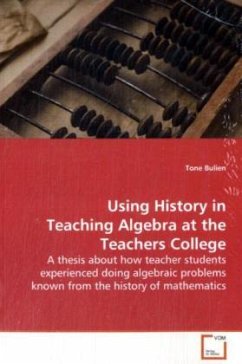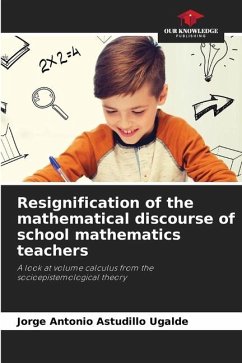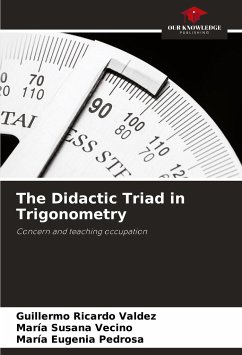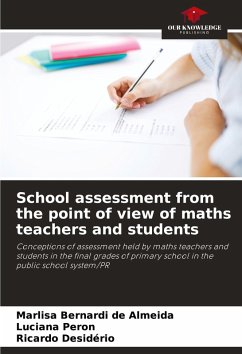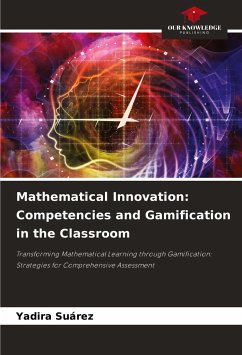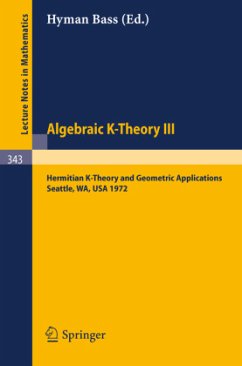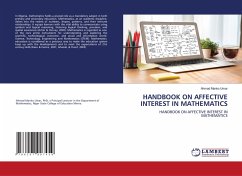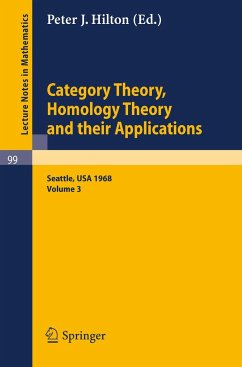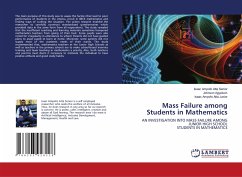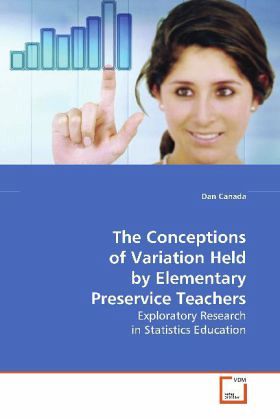
The Conceptions of Variation Held by Elementary Preservice Teachers
Exploratory Research in Statistics Education
Versandkostenfrei!
Versandfertig in 6-10 Tagen
52,99 €
inkl. MwSt.

PAYBACK Punkte
26 °P sammeln!
This study addresses how elementary preserviceteachers (EPSTs) think about variation in the threecontexts of sampling, data and graphs, andprobability situations. A qualitative study wasundertaken with thirty students in an elementaryteachers mathematics course. Written surveys werecompleted by all students both before and after classinterventions, and six students participated in preand post interviews. Collective results from thesurvey data, interview data, and class observationswere used to describe components of an evolvingframework useful for examining EPSTs conceptions ofvariation. The t...
This study addresses how elementary preservice
teachers (EPSTs) think about variation in the three
contexts of sampling, data and graphs, and
probability situations. A qualitative study was
undertaken with thirty students in an elementary
teachers mathematics course. Written surveys were
completed by all students both before and after class
interventions, and six students participated in pre
and post interviews. Collective results from the
survey data, interview data, and class observations
were used to describe components of an evolving
framework useful for examining EPSTs conceptions of
variation. The three main aspects of the framework
address how EPSTs reason in expecting, displaying,
and interpreting variation. Each of the three
aspects is further defined by different dimensions,
which in turn have their own constituent themes. The
depth in describing the evolving framework is a main
contribution of this research. The framework was used
to compare the thinking of the six interviewees from
before to after class interventions. Evidence
suggests that the class interventions, and the survey
and interview tasks, stimulated changes in the way
students thought about variation.
teachers (EPSTs) think about variation in the three
contexts of sampling, data and graphs, and
probability situations. A qualitative study was
undertaken with thirty students in an elementary
teachers mathematics course. Written surveys were
completed by all students both before and after class
interventions, and six students participated in pre
and post interviews. Collective results from the
survey data, interview data, and class observations
were used to describe components of an evolving
framework useful for examining EPSTs conceptions of
variation. The three main aspects of the framework
address how EPSTs reason in expecting, displaying,
and interpreting variation. Each of the three
aspects is further defined by different dimensions,
which in turn have their own constituent themes. The
depth in describing the evolving framework is a main
contribution of this research. The framework was used
to compare the thinking of the six interviewees from
before to after class interventions. Evidence
suggests that the class interventions, and the survey
and interview tasks, stimulated changes in the way
students thought about variation.



